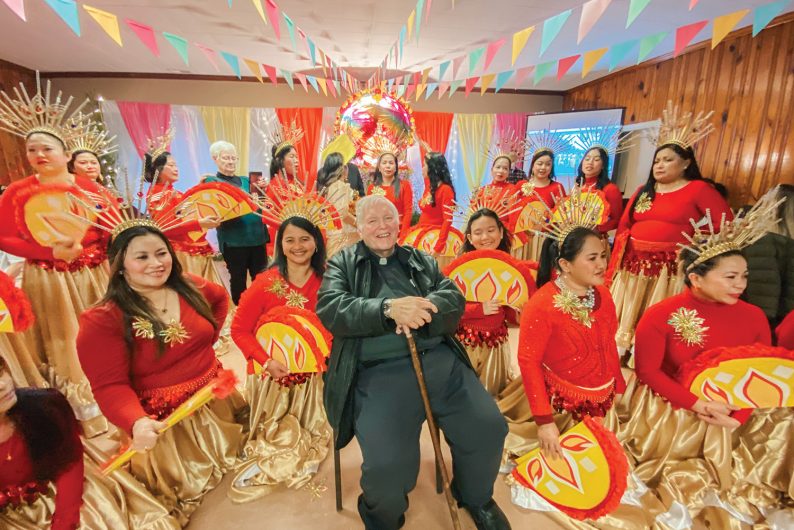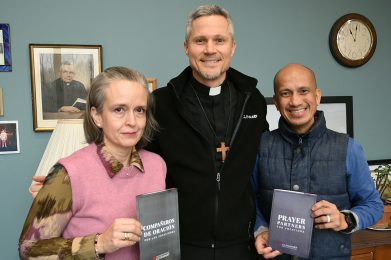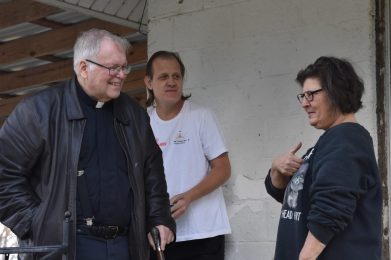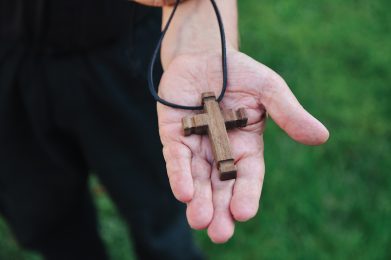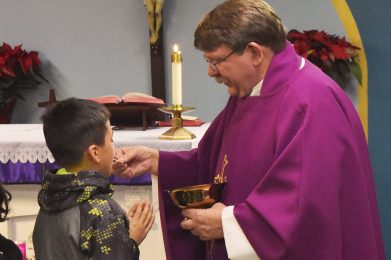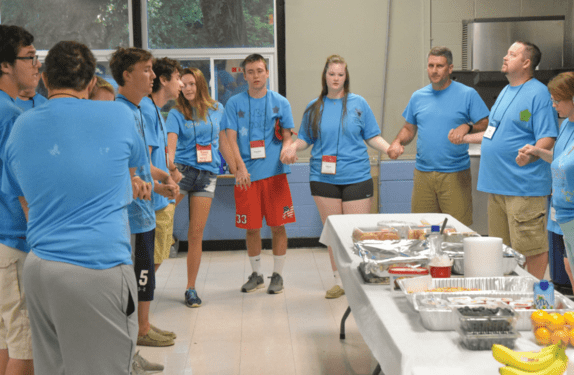Nineteen women wearing red, gold, and white dresses dance to the rhythms of Filipino Catholic music. They wave fans while another woman dances around the group raising and lowering a small statue of baby Jesus that she shows to the public.
Among the watching crowd, Glenmary Brother Curt Kedley enjoys the party. Today, in a small town in North Carolina, 200 people continue a tradition that began 45 years ago in the Philippines. They are in Windsor, Bertie County, the place Brother Curt calls home.
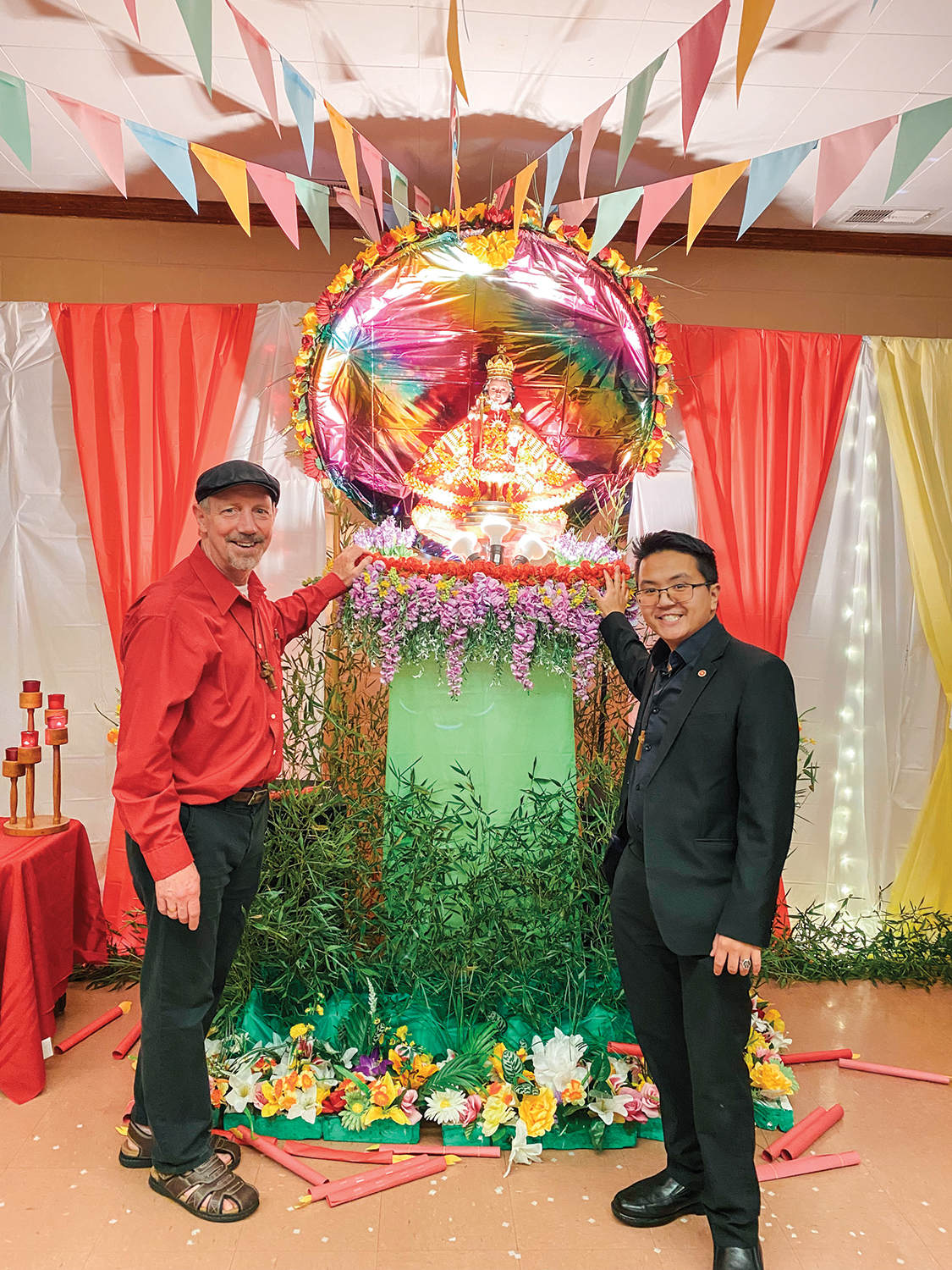
“It’s very festive!” says Brother Curt. “It captures my imagination because that’s not who I am.”
Dedicated to Holy Baby Jesus, the Sinulog festival is one of the main cultural and religious celebrations in the Philippines. Immigrants from that Asian country brought the Sinulog decades ago to Bertie County.
Sinulog celebrates the gradual acceptance of Christianity by the Filipino people, which began in the 16th century with the arrival of European explorers. The Philippines was a country where people adhered to several different pagan religions.
The little Jesus that dances in the town of Windsor is a replica of one that the European explorer Ferdinand Magellan left in the Philippines on his historic trip in the 16th century. In Bertie County and surrounding areas, the Sinulog festival has become a uniting event for Catholics, mainly Filipinos, but also Americans, Hispanics, and even a few African Americans, Brother Curt says.
“What is neat about it is that it’s very inclusive,” he adds. “Most people participate and sing and dance.” The celebration, which takes place on the third Sunday of January, includes a meal for all attendees, as well as other presentations.
Johcel Artigas was one of the Sinulog dancers this year. An immigrant from the Philippines, she says that about 100 of her compatriots regularly attend Mass at two of the Glenmary missions in North Carolina. Some of them are the main organizers of Sinulog, which begins with the prayer of a novena for nine days before the festival.
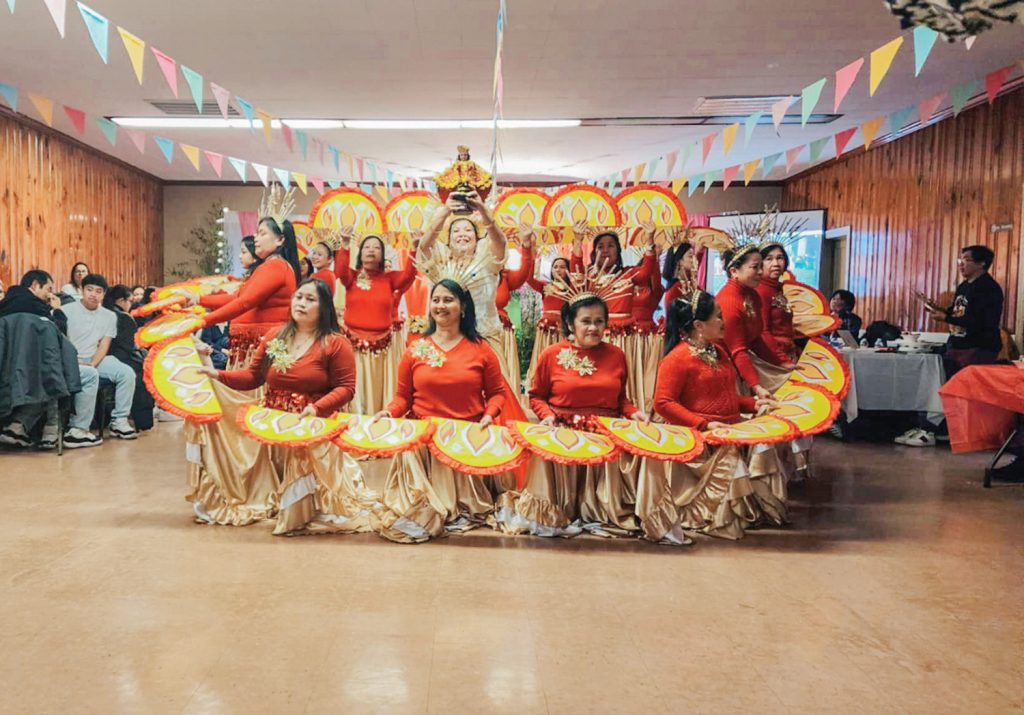
They came to fill a gap
What brought these Filipino immigrants to the area? Johcel says that most of them have come in recent decades to work as teachers, brought in by the Bertie County Schools District. Others have come to work as nurses, physical therapists, or other similar healthcare services.
In an often overseen part of the state, the school and healthcare systems in rural Bertie County have struggled to find and hire professionals. Some of the area’s challenges are low pay, the lack of affordable housing, and also the limited access to shopping, restaurants, and entertainment options that bigger cities offer.
Windsor is a town of about 3,300 inhabitants. In the 2021–2022 school year, the most recent data available, one in four teachers left the district.
Rogelio Baluyot and his wife Raymonette are from the Philippiness and work for Bertie County Schools. She is a teacher, while Rogelio provides IT services. Both helped organize the Sinulog this year.
Rogelio explained that for them as Filipino immigrants, it is very important to keep their Catholic faith in the United States, and the novena and Sinulog festival are a key piece of that identity.
Everybody wins
Brother Curt says that the arrival of these Filipino immigrants to North Carolina is a win-win: for them, for the students and patients in the area, and for society in general.
The prevalent attitude among these immigrants is, “I am from the Philippines and I’m on a mission for a better way of life,” Brother Curt says. In addition to providing much-needed education and healthcare services in underserved Bertie County, these immigrants improve their quality of life in the US. Some of them are even able to send money to help their relatives back in the Philippines, a country where about 14% of the population live on $3.65 a day or less, according to the World Bank.
Brother Curt adds that “the Filipinos have a warm heart.” This has allowed them to build good relations with people in the African American community, which is not always easy for a Catholic missioner in areas where Catholics are a minority of the population, says Brother Curt.
Johcel says that she and the Filipinos she knows are grateful to the US for the opportunities this country offers. She, Rogelio, Raymonette, and others will continue celebrating Sinulog each year, in Rogelio’s words, “to keep our faith in God strong and to foster unity among Catholics in Bertie County.”
– Omar Cabrera
This article first appeared in the Spring 2025 issue of the Glenmary Challenge.

